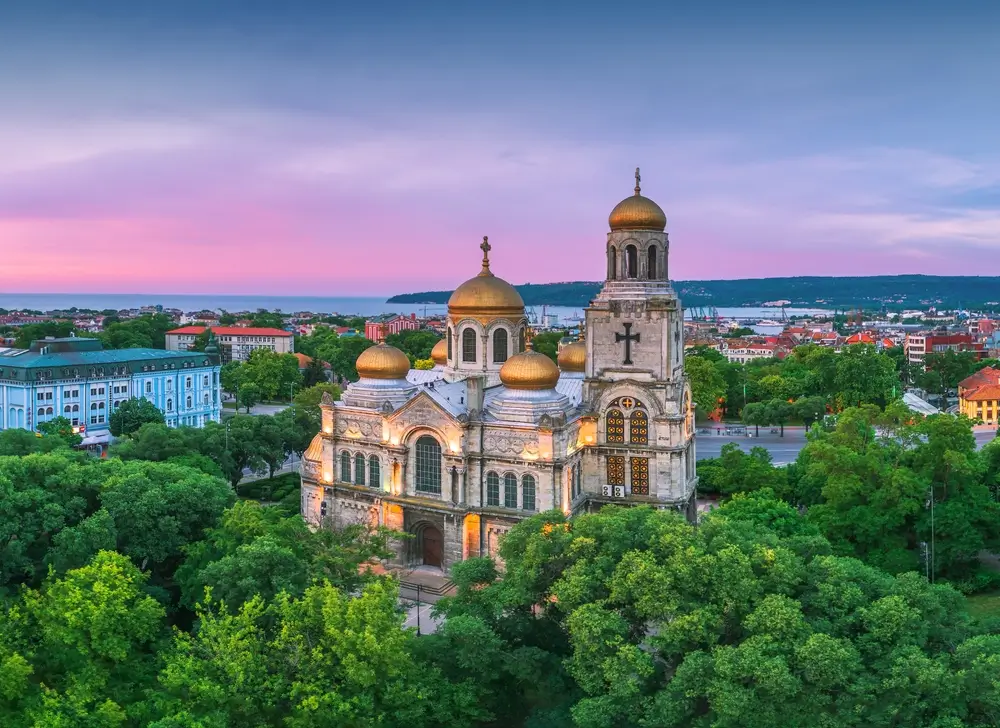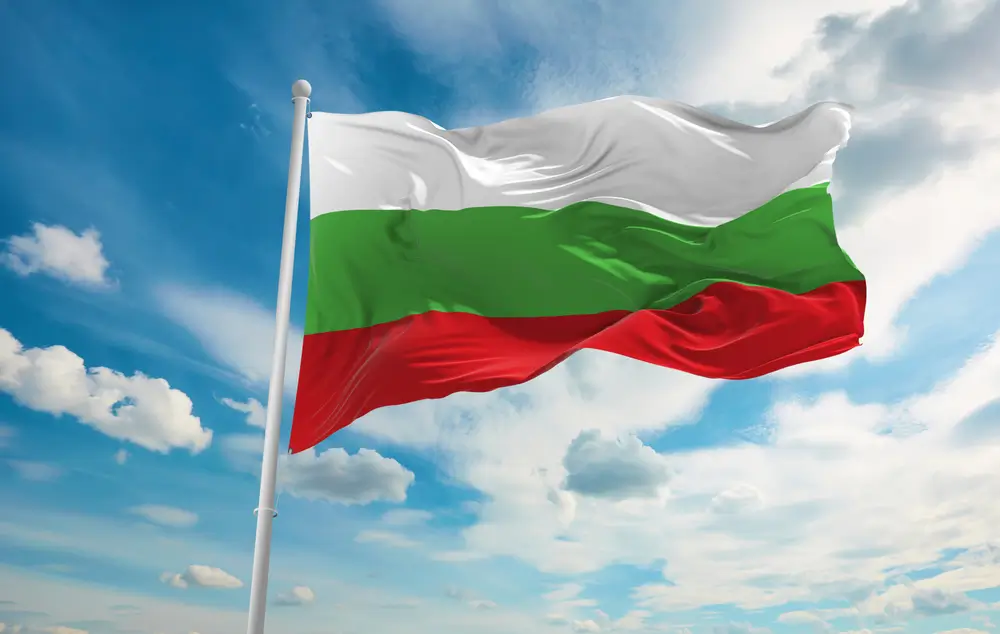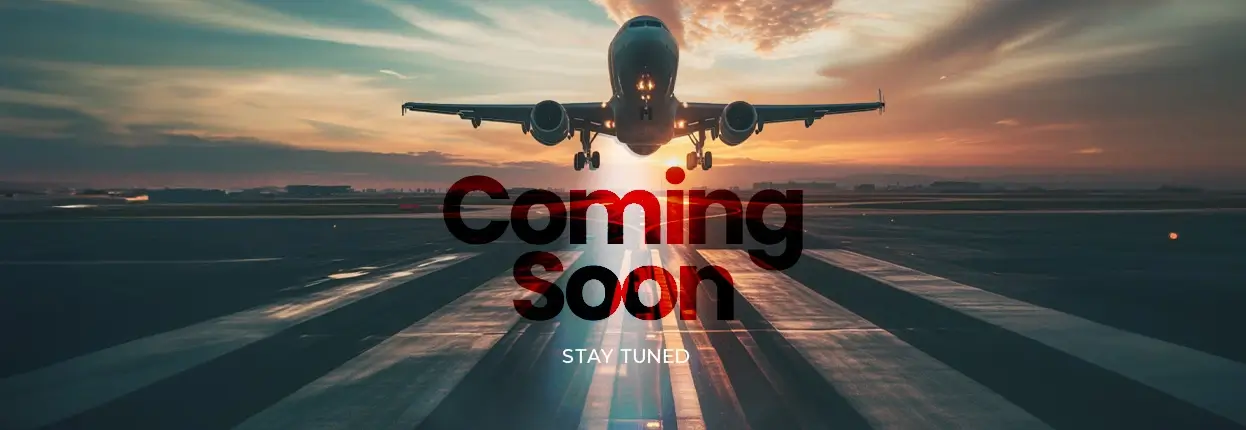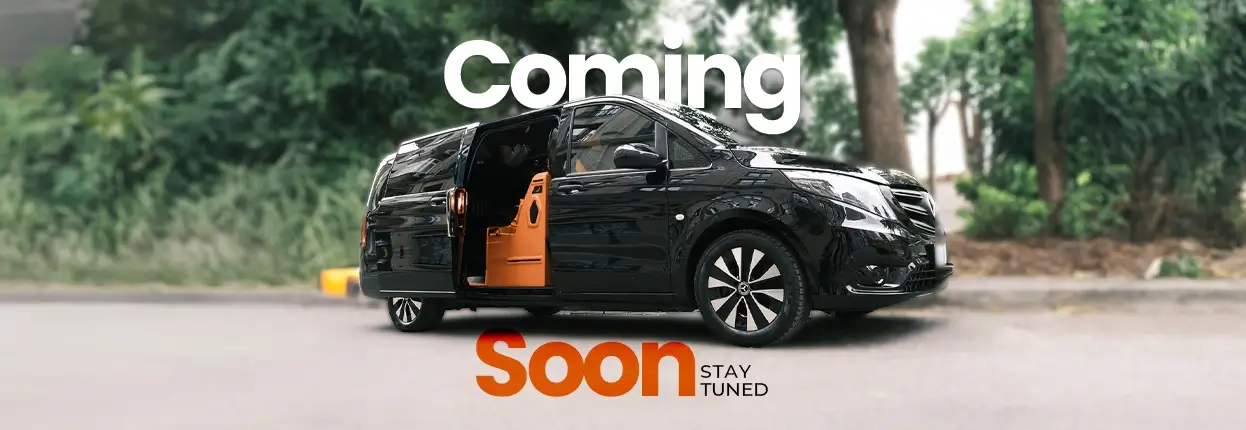Bulgaria
Bulgaria دليل البلد

Nestled in the heart of the Balkans, Bulgaria beckons with its breathtaking natural landscapes and unfolds the tapestry of history with its abundant historical treasures. Sofia, the capital city steeped in ancient civilizations, promises an enchanting journey for history enthusiasts. But Bulgaria offers more than just its capital; its picturesque vistas, alive with vibrant beauty, and delectable local cuisine will leave an indelible mark on every traveler's heart.
Things To Know Before Going To Bulgaria
- Customer Service: While Bulgarians are generally kind, customer service in Bulgaria can be lacking.
- Train Travel: Taking the train in Bulgaria is an experience, but the trains are often outdated and not very comfortable. They also tend to be slow.
- Payment Methods: In major cities, many stores accept card payments; however, in smaller towns, villages, and tourist attractions, card payments are less common compared to Western countries.
- Business Hours: Small businesses and shops often take a 2 or 3-hour lunch break in the middle of the day, although this doesn't apply to cafes and restaurants.
Cultural and Local Bulgaria Tips
- Hospitality and Friendliness: Bulgarians are renowned for their warm hospitality and friendliness. It's customary to greet people with a handshake and maintain eye contact during conversations.
- Respect for Privacy: Bulgarians value their privacy and don't appreciate others prying into their personal affairs or bothering them unnecessarily.
- Perception vs. Reality: Despite appearances, Bulgarians may seem stern or unapproachable, but they are actually quite laid-back and willing to help if approached politely and sincerely.
- Cultural Expression: Bulgarians may appear grumpy or serious, but it's often just their content expression. Don't take it personally.
- Sensitivity to LGBT Topics: Avoid discussing LGBT and gay topics as they may be sensitive subjects. Be prepared for cultural differences in humor and jokes.
Is Bulgaria Expensive To Visit?
No, Bulgaria is not an expensive country to visit. In fact, it is considered one of the most affordable destinations in Europe for travelers
Is Visiting Bulgaria Worth It?
Yes, Bulgaria offers a unique blend of history, culture, natural beauty, and affordability, making it an excellent destination for travelers.
Is Bulgaria Good For Honeymoon?
Yes, Bulgaria offers a unique combination of romance, luxury, and affordability, making it an excellent destination for a honeymoon.
Is Bulgaria Safe to Visit?
Bulgaria is considered a relatively safe country to visit, with low crime rates compared to other European countries. However, it is always important to take general precautions to ensure your safety and security, especially regarding crimes targeting minorities, such as pickpocketing and scams.
Are Bulgaria People Friendly?
Yes, Bulgarians are very welcoming as part of their culture. They are known for their hospitality and friendliness.
Best Cities in Bulgaria
Here’s your fast Bulgaria city guide depending on where city you are planning to visit:
| City Name | Best For | Best Attractions | Average Trip Cost |
Sofia | History & Culture | Alexander Nevsky Cathedral, National Palace of Culture, Vitosha Mountain, Sofia History Museum, Boyana Church | $800 - $1000 |
Plovdiv | Architecture & Arts | Ancient Theatre of Philippopolis, Old Town, Roman Stadium, Kapana District, Regional Ethnographic Museum | $700 - $900 |
Varna | Beach & Sea | Sea Garden, Golden Sands Beach, Aladzha Monastery, Varna Archaeological Museum, Cathedral of the Assumption | $900 - $1100 |
Bansko | Skiing & Winter Sports | Bansko Ski Resort, Holy Trinity Church, Pirin National Park, Bansko Old Town, Velyanova House | $1000 - $1200 |
Veliko Tarnovo | History & Scenic Views | Tsarevets Fortress, Patriarchal Cathedral of the Holy Ascension of God, Samovodska Charshia, Arbanasi Village, Asen's Monument | $800 - $1000 |
Must-See Bulgaria Attractions
Here are must-see attractions in Bulgaria:
- Cape Kaliakra: A stunning headland on the Bulgarian Black Sea coast, known for its scenic beauty and historical significance.
- Tsarevets Fortress: Located in Veliko Tarnovo, this medieval fortress was the stronghold of the Second Bulgarian Empire and is now a major tourist attraction.
- Madara Rider: A unique rock relief located near the village of Madara, depicting a horseman thrusting a spear into a lion, symbolizing power and authority. It's a UNESCO World Heritage Site.
- Rila Monastery: One of Bulgaria's most famous monasteries, nestled in the Rila Mountains. It's renowned for its rich history, stunning architecture, and as a spiritual center for Bulgarian Orthodox Christians.
- Thracian Tomb of Kazanlak: An ancient Thracian burial site, also a UNESCO World Heritage Site, famous for its well-preserved frescoes depicting Thracian rituals and lifestyle.
- Belogradchik Rocks: A natural wonder consisting of strange rock formations in various shapes and sizes, located near the town of Belogradchik.
- Perperikon: An ancient archaeological site in the Eastern Rhodopes, believed to be a sacred place since Neolithic times, with remains from various civilizations.
- Sveshtarska Tomb: Another Thracian tomb, known for its unique architecture and richly decorated interior, also a UNESCO World Heritage Site.
The Best Time To Visit Bulgaria
The best time to visit this beautiful country is during the summer months, between June and September, unless you are visiting the ski resorts that open in the winter months. In that case, December to March is the ideal time frame.
Where is Bulgaria?
Bulgaria is located in Southeast Europe, in the northeast part of the Balkan Peninsula. It is bordered by the Black Sea to the east, Serbia and the Republic of North Macedonia to the west, Greece and Turkey to the south, and Romania to the north.
What is the Capital of Bulgaria?
The capital of Bulgaria is Sofia. It is the capital and largest city of Bulgaria, located in the western part of the country. It has a rich history dating back to ancient times and has been influenced by various cultures, including the Thracians, Romans, and Ottomans.
Languages Spoken in Bulgaria
Bulgarian is the official language of Bulgaria. However, there are other languages spoken in Bulgaria due to its multicultural status. Here are the most spoken languages in Bulgaria:
- Bulgarian: 85.2% of the population, official language
- Turkish: 9.12% of the population, spoken by the Turkish minority
- Romani: 4.23% of the population, spoken by the Roma minority
- Russian: 0.24% of the population, most commonly spoken foreign language
- English: Growing number of speakers, especially among the younger generation
- German: Around 8% of the population speaks German
Time Zone of Bulgaria
Bulgaria is in the Eastern European Time (EET) zone, which is UTC+2. During daylight saving time, it is UTC+3.
What Currency Does Bulgaria Use?
The Bulgarian lev (BGN) is the official currency of Bulgaria. While Bulgaria joined the European Union in 2007, it has not yet adopted the Euro as its official currency.
Bulgaria Flag

The flag of Bulgaria is a tricolor consisting of three equal-sized horizontal bands of white, green, and red. The flag is a national symbol that expresses the independence and sovereignty of the Bulgarian state.
Population of Bulgaria
The population of Bulgaria is approximately 6,618,615 as of 2024, with a decline of 1.03% from 2023.
Strange Laws in Bulgaria
- It is illegal to drive a dirty car in Bulgaria.
- Drinking alcohol in public places is indeed forbidden in Bulgaria, except in licensed outdoor areas or during specific events like festivals.
- There are regulations regarding mushroom picking in Bulgaria.Mushroom picking is regulated to ensure sustainability and protect protected areas.

